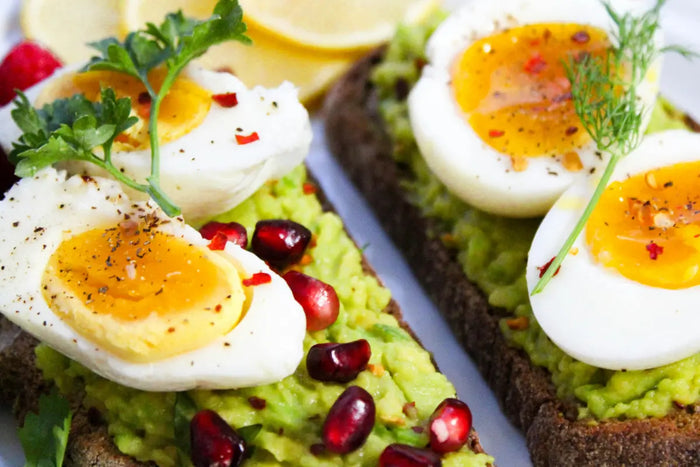You may have come across this article looking for some assistance and advice. How do you choose a personal trainer, you ask?
You’ve probably spent a lot of time Googling things like “personal trainer UK” or “best personal trainers” in a bid to find the golden ticket, but alas – to no avail. Why? Because the clue is in the name. A personal trainer is just that. Personal.
What is a personal trainer?
By definition, a personal trainer is an individual that is responsible for conducting individual fitness assessments, providing educated advice and designing plans that are tailored to your individual needs and goals. Their main aim is to help you reach these goals, live a healthy lifestyle, and improve your performance.
The benefits of a personal trainer
We'd definitely recommend considering hiring a personal trainer. They’re great for motivation (let’s be honest, you’re less likely to skip out on them), and they enable you to maximise your time and workouts whilst achieving better, faster results.
Another great benefit is that you don’t have to meet your personal trainer in the gym. Many may have their own home gyms or equipment, and you can even train in the comfort of your own home or garden! This is absolutely great for those with a busy schedule or those that suffer with gym anxiety.
How to select a personal trainer
The best personal trainers are often hard to find. Whether their waiting list is off the charts, they’re way out of your price range or you just don’t vibe with them, selecting your perfect personal trainer is no easy task.
Important fitness aspects aside, it’s really important that you get on with your personal trainer on a personal level. You’re going to be spending a lot of time with them and you’re trusting them with your workout plan. It’s kind of a big deal.
So, the question: how do you choose a personal trainer? Well, there’s lots of things to consider.
Check their professional qualifications
One of the most important elements you need to consider is the personal trainer’s qualifications and experience. There’s no point trusting your workout plan and progress with someone that doesn’t have the necessary knowledge to help you get there. The level two qualifications that you’re looking for at the very least are the below:
- A Certificate in Fitness Instructing – Gym
- A Diploma in Health, Fitness, and Exercise Instruction
- A Diploma in Instructing Exercise and Fitness
Think about the cost
Secondly, it’s time to think about cost. It’s no secret that personal trainers are a bit on the pricey side, and this is because you get what you pay for; quality personal trainers aren’t going to be cheap. You’re paying for their time, dedication and expertise.
Because of the overall cost, a lot of people are a little bit put off getting a personal trainer, but don’t let that stereotype get in your way! Not all personal trainers are going to charge you through the roof. You just need to find one that works for you. It’s an investment.
Most personal trainers charge by the hour, so the overall costings will depend on how many hours you schedule in a month. In the UK, personal trainers average around £30-£50 an hour, so you’re looking for that kind of ballpark.
Consider your fitness goals
Lastly, but absolutely not least, it’s hugely important that you consider your personal fitness goals and find someone that prioritises this for you. Your personal trainer is responsible for designing a plan to get you where you want to be, so making sure they are aware of your fitness goals is a main priority.
Whether your fitness goal is to gain muscle, lose weight or improve your stamina, your personal trainer should know how to get you there. To ensure you’re comfortable with this and in the knowledge that they are capable and experienced in your area, it’s perfectly okay to have a trial session and decide from there. Remember, it’s all about you!
It’s all about where you look
So, now that you know what to look for, let’s discuss where to begin. If you’re a member at your local gym, that’s definitely the first place to start. Ask the staff at the gym and see who is available for a discussion. Your gym will definitely have a team of personal trainers available.
Aside from this, the absolute best way to find the best personal trainers is through word of mouth. Ask your friends, family, colleagues and whoever else; they’ll definitely know of someone (or know someone that does).
If this isn’t for you, Instagram is also a great place to look. Many personal trainers have dedicated business pages demonstrating their client progress and experience, and this can be a great way to get a feel of how the trainer works and what they’re particularly good at.
Summary
Are personal trainers worth it? Absolutely. If you find the best personal trainer for you: someone that prioritises your goals and progress, gets on with you well and positively influences your workout, the difference is immense.
It’s important to note that if you’ve never had a personal trainer before, they’re probably going to put you through your paces. And this is good: no pain, no gain, right? The best personal trainers really have the ability to maximise your progress and change your workout routine for the better, so if you’re debating it, go ahead and take the leap! You’ll wish you did it sooner.
In order to maintain your energy levels, maximise your performance and hit those all-important fitness goals, why not incorporate The Energy Booster into your routine?


















